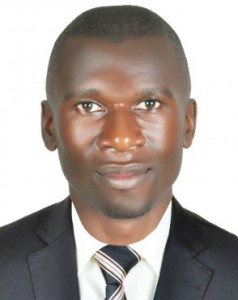This article turns the spotlight on daily dilemma faced by EU host countries whether or not to allow a migrant to stay for benefiting health services. A core question should be answered: could the individual health condition of the migrating person motivating a request to stay for health reason be properly managed in the country of origin?

By Yves Charpak
MD, PhD, Consultant, Vice-president of the French Public-Health Association
Promoting Some Literacy on the Health Systems of Countries of Origin of Migrants in Europe
More and more citizens of the world have reasons for migrating, whatever the “urgency” of it. Among the reasons for migrating, health was not often up to now the primary reason among economic migrants, often young and in good health, or among “asylum seekers” flying away from conflicts, catastrophic events, and other life-threatening situations.
At the same time the world population is aging at a global level, increasing everywhere the need for essential health services, both preventive and curative. And although better health systems are being promoted and developed everywhere, their capacities and resources in many countries remain far from the expectation of their citizens’ needs and request.
Therefore, in a global world with widespread global knowledge on what is available elsewhere, including health services, it is not a surprise that seeking health services abroad starts to be more and more “in the picture”.
Tourists, short term expatriates, health travelers, as long as they can pay for health services are not creating major concerns for the financing of national health systems and create even expectation for new resources: the services are then paid through direct payments or international insurance coverage or bilateral agreements for coverage with the countries of origin.
Some national health systems can even develop specific “excellency” services targeted for foreigners, irrespective of the overall “comprehensive” capacity of their health system.
It may also be facilitated at regional level, through specific regulation like in the European Union, through the Cross-border care directive and/or the development of centers of excellences in some European countries but accessible to all EU citizens (rare diseases centers for example).
For tourists and expatriates, information on where to seek care may be given by their own foreign affairs services, their insurance companies and even some good “travel books”. Health travelers may benefit from the growing number of business companies proposing to find the relevant health services and organizing everything for them.
On the contrary, access to proper health care for migrants, whatever the reasons for it, is at stake everywhere for the host countries. Decisions regarding migrants access to health services are mostly “political” and “societal”, linked to humanitarian, generosity and solidarity values in host countries: when the reasons for migrating are not health, access to health services may be granted to migrants as part of an integrated package of rights. They don’t call for a specific knowledge of what is available in the countries of origin of migrants.
But there are more and more situations where health becomes the core reason for migrating.
The global epidemiological and demographic transition, illustrated by more aging populations and increased chronic conditions (cancer, cardiovascular diseases, renal terminal insufficiencies, diabetes, etc.), create an increase need for health care services (not to mention the needs for primary prevention policies on risk factors for those diseases), including in poor and emerging countries.
Situations of shortage of services, of bad quality services, of unaffordability of existing services are more and more visible all over the world.
It is reasonable that more citizens of the world being in danger of losing life because of no access to an effective care in their own country start also to look for opportunities elsewhere.
They cannot pay for it, but it is clearly a societal, humanitarian and ethical question: if a citizen of the world is in danger of losing life or a major biological function because of a disease for which proper care can avoid the tragic consequences, can any country refuse to provide it if the country of origin cannot… especially if the person has already moved to the potential host country?
In the EU, it is already a daily situation, for which some administrations have to decide whether or not somebody is allowed to stay for benefiting health services. Rules and regulation for it are very different from one host country to another. And the decisions are very sensitive politically and financially, in particular in times of economic “shortages” for national health services.
One essential question is raised by those specific requests linked to individual health situations: what is the state of the health system in the country of origin? What is the probability that the health condition of the person requesting to be welcome could be properly managed in the country of origin or not? Where to put the barriers in terms of immediate danger, and is there really a lack of any relevant health services in the country of origin which could provide such lifesaving care? What would be considered acceptable care even if not the highest quality and “high-tech” care? Where is the knowledge needed to answer this?
A joint action program called MedCOI (Medical Country of Origin Information program), financed by the EU and piloted by Netherland and Belgian has been developing a set of knowledge. It is now being absorbed by the EASO (European Asylum Seeker Office). The exercise of providing relevant information on the countries of origin is more complex than it seems: the administrations and professionals in charge of answering those questions on individual situations are not experts in health systems analysis worldwide, and sometimes not even knowledgeable on medical and health issues.
Then, what kind of information could provide them a relevant answer to this specific question?: Could the individual health condition of the migrating person motivating a request to stay for health reason be properly managed in the country of origin?
The truth is that nobody can answer this precisely. Health system specialists would answer that the individual situation analysis is not at reach through overall reports and indicators on a country: for example, even in the richest countries, you can find citizens who would not get a proper access, a proper financial coverage to some health services even for life threatening situations. Answering individual requests would need proper investigation on site, to be replicated for each demand.
When the demand is increasing (in France, there are around 60 000 demands per year of asylum seekers for health reasons), the decision making cannot for sure be based on individual investigations.
Then the only way forward is through describing at best the availability and access to health services by citizens at collective level, focusing on specific diseases (the most frequent health situations motivating the requests) and generic indicators of the capacity of the considered health system (financing, overall solidarity mechanisms, health infrastructures availability and distribution, human health resources availability…).
Specialized organizations and academic institutions working on health systems analysis provide very comprehensive set of data and structured analysis for contributing to the knowledge on health systems: European Observatory on Health Systems and Policies, OECD, World Bank, Institute for Health Metrics and Evaluation, WHO Global Health Observatory…. Some may also provide global analysis on the management of specific health problems (UNAIDS, International Agency for Research on Cancer, International Diabetes Foundation…).
This very comprehensive knowledge is used for research purposes but also for guiding decision making and international AID on overall governance of the health systems, regarding organization, financing, improving the quality and the efficacy of the health services.
But informing administrations and health practitioners in charge of managing records of individual migrants in Europe about the capacity of their countries of origin cannot rely only on this higher-level knowledge. They have to react quickly, they cannot spend hours or days understanding in depth the situation in each country of origin.
In other words, far from academic and comprehensive documents describing health systems in the world, how to give those non-specialists in health systems analysis sufficient literacy and very practical tools allowing fair decision making?








